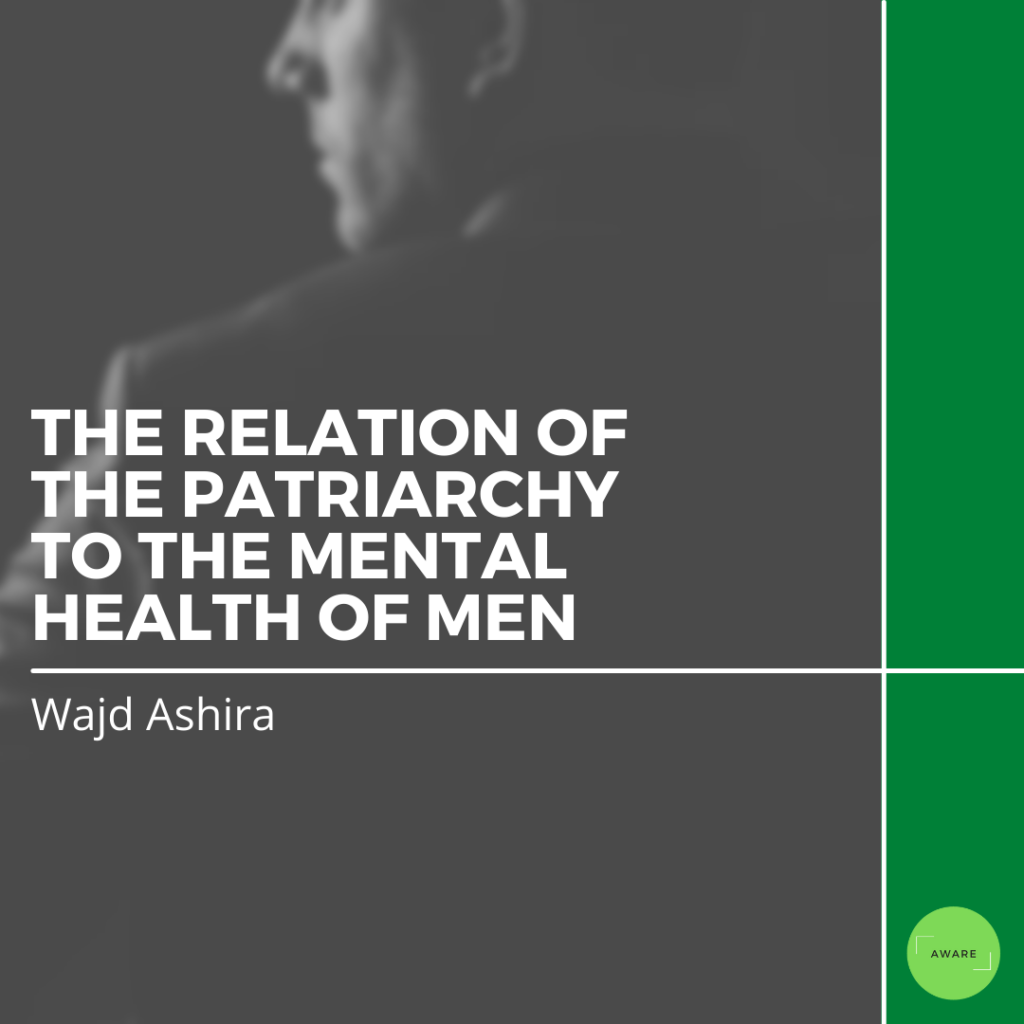The patriarchy has always been criticized for being deleterious and harmful to women, as its main purpose is to push men to the top of the hierarchy whilst pulling women to the bottom of it. By the definition, people believe that men immensely benefit from the patriarchy. However, it actually constructs a plethora of walls that detriments the men themselves and infringes upon their ability to be free. One wall that is very pernicious is the wall that disconnects men from their emotions. When a young boy is being brought up in this Arab society, they throw a wall that lands like a meteorite, instantly demolishing the rope that connects both the man and his feelings. This leaves the man believing that his feelings and emotions are enigmas that should be eradicated and not considered.
Traditional Gender Norms and the Patriarchy
As previously mentioned, the patriarchy renders men dominant and hegemonic figures that should not succumb, or else they would be seen as inferior to the other men who conform to this standard. Part of succumbing or giving up is feeling “vulnerable” or “weak”. This discourages men from opening up and confiding in people, making them substantially suppress their emotions. Patriarchal ideologies entail a fierce, ferocious, and tough man who is very competent and can resolve any huge conundrum or problem. Again, this dwindles or reduces the amount of times men would seek help when they are struggling, hurting, or just drained. The patriarchy has compelled men to adhere to toxic traditionally masculine traits that feminize feelings and emotions – two pieces that complement every human being.
Empirical Support on How These Norms Impact Mental Health
Research conducted by the APA has shown that men do not see a psychologist or any other mental health professional when they are depressed or just struggling in general. Subsequently, a man does often does not admit that he is suffering because of the traditional gender norms that have stemmed from the patriarchy. A man should apparently “get a grip” or “toughen up” when he is struggling with his mental health, which is non-sensical at all. This substantiates that men are more likely than women to commit suicide since the traditional roles completely annihilate a mentally healthy lifestyle. Being in touch with your emotions and admitting that you are going through some major or minor issues apparently contradicts the gender norms this revolting patriarchy has levied on men.
Countering a Misbelief
Traditionally, gender norms are not innately terrible or devastating to men. Many men abide by these norms. However, the mental well-being of men is not in the script of these norms since the original writers, the hunter-gatherers, did not take it into consideration, and this script has been passed down from generation to generation without any alterations. So, again, traditional masculinity does not directly equate to toxicity – the way they are imposed on men and the other preconceived notions all contribute to the suppression of emotions in men.
This lack of emotional literacy can be ameliorated. We should dismantle the belief that men who seek help when they are struggling are weak and frail people because they truly are not. They are brave and ferocious human beings for having the utter urge to admit that they are struggling in such a patriarchal society. They should know that struggling is completely normal, and it is a human condition – not a feminine one. Mental health advocates should further endorse the mental well-being of men to erase what the patriarchal system has caused. The patriarchy is a system that has been dictating whether men can share their emotions or suppress them for so long, which means that it is a requisite for mental health advocates to include men in all of their advocacies. The patriarchy harms both men and women.
